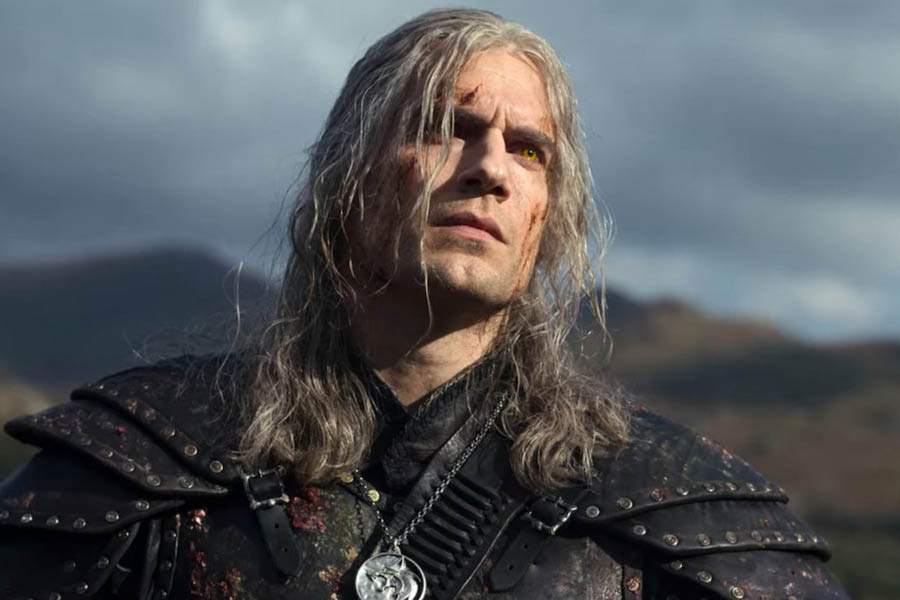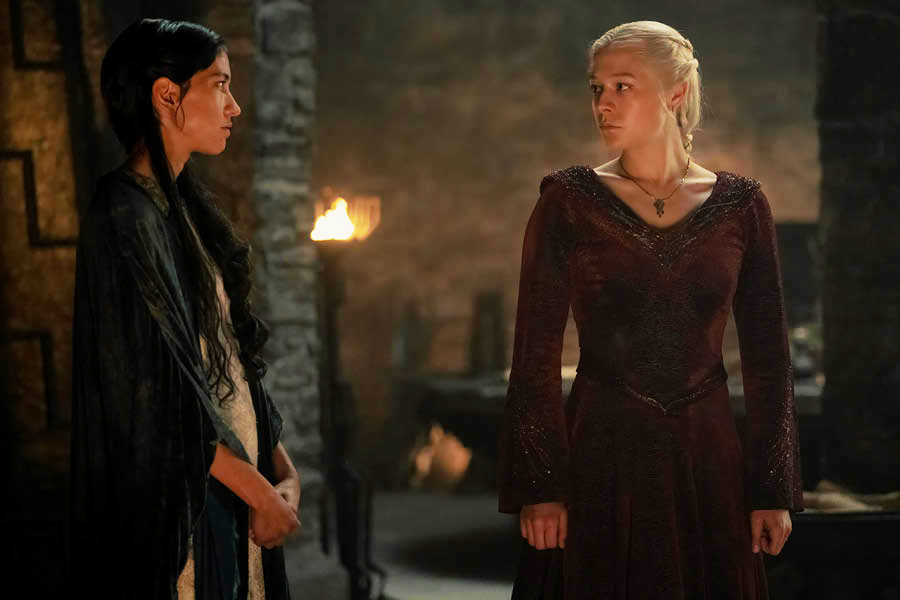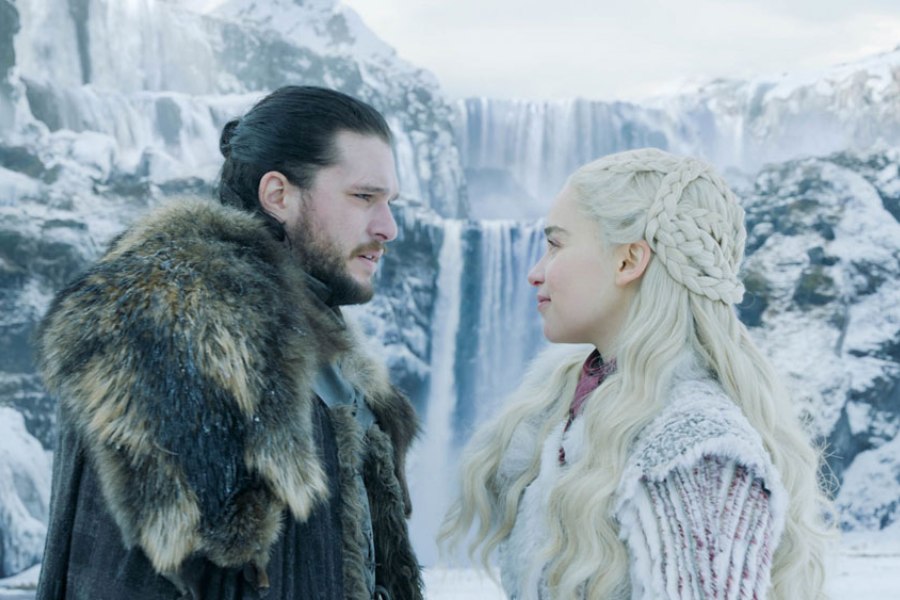By the time Daenerys rode off into the sunset (or rather, a particularly sullen Westerosi ash cloud), something seismic had shifted in the television landscape. Game of Thrones had turned high fantasy into prestige drama, complete with Reddit group dissection, Emmys, and Starbucks cups left on medieval tables. Naturally, streamers scrambled to find their own Iron Throne. But nearly five years later, it’s fair to ask: where did all the magic go?
Money over matter
The recent cancellation of Amazon Prime’s The Wheel of Time — one of the more ambitious and better-executed fantasy series on offer — feels like a metaphorical sword in the back for genre lovers. Based on Robert Jordan’s doorstop-sized saga, The Wheel of Time had a lot going for it: a rich world, a diverse cast, a clear arc of rising stakes, and a kind of mature earnestness rare in a genre that too often leans on CGI and gravel-voiced prophecy. It didn’t reinvent the wheel (sorry), but it was solid, sincere fantasy. And now, it’s gone. The reason given is a fall in viewership and the show not meeting financial expectations, despite positive reviews of the third season. But the real reason is perhaps the commitment required to bring the whole series to fruition.
Meanwhile, Prime’s The Lord of the Rings: The Rings of Power has been renewed for Season 3, despite being a billion-dollar reminder that you can’t buy depth at a design studio. Sure, it looked gorgeous. It also felt like watching someone read a Tolkien Wikipedia page while flipping through a luxury interiors magazine. The elves were pretty, the dialogue sounded like it had been through a Silmarillion translator, and the pacing could put Ents to shame. Yet, here it is, still standing, somehow both over-polished and emotionally flat.
Then there’s The Witcher on Netflix. Once the snarling, sword-swinging answer to all the post-Thrones high fantasy hunger, it’s now a shell of its former self. Henry Cavill's departure felt less like a casting shake-up and more like the White Wolf abandoning the hunt. His brooding charisma and gamer-geek affection for the source material grounded the show in something authentic. Liam Hemsworth, despite his best smouldering efforts, feels like a recast from a different universe, and not one fans particularly want to visit.

Henry Cavill as Geralt in 'The Witcher' File photo
What’s the problem?
So what’s going on here? Why is high fantasy, once the toast of television, struggling to stay on its feet? Part of it may be the Game of Thrones curse. That show set the bar sky-high, blending political intrigue, sex and dragons into a potent Monday morning cocktail. But it also benefitted from being a product of its time: pre-peak streaming, pre-franchise fatigue, and released in an era where binge-watching was still a novelty. Today, audiences are savvier, and streamers are more cautious. You can’t just slap a sword on it and hope for a saga.
There’s also the source material problem. The Wheel of Time, for all its richness, had the impossible task of condensing 14 (yes, 14!) dense novels into digestible seasons. That it managed any narrative coherence is a feat. Rings of Power, on the other hand, has almost the opposite problem — a vast lore sandbox and not enough fleshed-out plot. It’s like trying to sculpt a story out of The Silmarillion’s footnotes. Well, technically it is based on the appendices of The Lord of the Rings trilogy to be honest.
It’s telling that the only high fantasy show currently standing tall is House of the Dragon, HBO’s Thrones prequel that understands its lineage well. The show leans into palace intrigue and familial dysfunction with all the venom and verve of its predecessor. It also remembers what Rings of Power often forgets: fantasy is only as good as its human drama. Dragons are great, but give us grudges, ambition and awkward dinner scenes with tension so thick it could kill a king.

A still from 'House of the Dragon' File photo
The well is far from dry
Where does high fantasy go from here now that the swords are dulled and the streaming budgets are nervously tightening? Well, the shelf is far from empty. There are quite a few literary realms just waiting for a TV adaptation (assuming a streamer can resist turning it into 45 minutes of mood lighting and whispered exposition).
There’s Patrick Rothfuss’s The Kingkiller Chronicle, a series that’s practically tailor-made for screen — think bardic magic, broken geniuses, and enough moody candlelight to keep a lighting crew employed for seasons. If anyone ever manages to get Rothfuss to finish book three, this could be a prestige juggernaut. But then Game of Thrones was also two books short and still managed to be explored on screen (no, we are not condoning the mess that was Game of Thrones seasons 7 and 8).
Then there’s Brandon Sanderson, who’s basically a one-man publishing industry. Mistborn is a gritty, twist-heavy saga of alchemy and rebellion that reads like a heist film crossed with epic fantasy, while The Stormlight Archive is... well, enormous. It is sprawling in scope, high on spectacle, and emotionally dense enough to make a CGI spren cry. Mark Lawrence’s The Broken Empire trilogy could bring some much-needed venom to the genre — it's dark, violent, deeply philosophical, and its morally murky protagonist makes Geralt from The Witcher look like a camp counsellor.
These are all ripe for adaptation, not just because they’re rich and visually stunning but because they treat magic as something mythic and character as something messy. And frankly, that’s what high fantasy on screen needs now — not another over-lit castle, not another slow-motion elf montage, but stories that aren’t afraid to get a little weird, a little wounded, and a lot more human.











